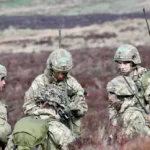Sleep disturbances are a prevalent issue among military veterans, particularly those who have experienced combat. These disturbances encompass various sleep disorders, with insomnia and nightmares being among the most reported symptoms. The psychological manifestations of service-related trauma, such as post-traumatic stress disorder (PTSD), significantly affect sleep patterns, leading to heightened anxiety and distress during nocturnal hours. Veterans may find themselves reliving traumatic events through vivid nightmares, which can create an almost cyclical effect; the fear of having nightmares may contribute to difficulty falling asleep, further exacerbating insomnia.
Statistics indicate that veterans are disproportionately affected by sleep disorders compared to the general population. Studies suggest that approximately 60% of veterans report insomnia symptoms, while around 50% of those diagnosed with PTSD experience chronic nightmares. The prevalence of sleep disturbances can have profound implications on a veteran’s daily life. Chronic lack of sleep can result in cognitive impairments, emotional instability, and decreased motivation, which can hinder their ability to reintegrate into civilian life. Notably, inadequate sleep can also exacerbate existing mental health issues, like anxiety and depression—conditions that are already prevalent among veterans.
The physiological effects of sleep disturbances can manifest in various ways. Poor sleep quality impacts brain functioning, which may lead to difficulties in concentration and decision-making. These impacts are particularly concerning for veterans as they transition to civilian roles that often require high levels of attention and responsibility. Additionally, the toll on physical health cannot be overlooked; lack of proper rest increases the risk of chronic conditions such as obesity, heart disease, and diabetes, further diminishing the overall quality of life for countless veterans in the UK.
Personal Journey: A Veteran’s Struggle with Sleep
The journey of sleep-related challenges often begins quietly, unnoticed until the weight becomes unbearable. For many veterans, returning to civilian life presents a plethora of new demands, yet, for some, it also heralds an unexpected struggle with sleep. One such individual, a former service member from the UK, found himself grappling with insomnia and nightmares that stemmed from his time in service. Initially, he attributed sleepless nights to the stress of transitioning back to a ‘normal’ life. However, as weeks turned into months, he realized that the roots of his struggle were much deeper—tied to the emotional and psychological scars of his experiences on the front lines.
The onset of sleep issues was gradual yet relentless. In the quiet of the night, memories of traumatic moments reemerged, intertwining with everyday worries in a cacophony of anxiety. The seemingly innocuous act of laying down to sleep became a nightly ordeal, marked by racing thoughts and vivid recollections of past traumas. What was once a place of rest and rejuvenation transformed into a source of distress, impacting not just his sleep, but also his overall wellbeing. Fatigue seeped into his daily activities, affecting relationships, work performance, and emotional stability. The struggle was not merely a battle against fatigue; it was a confrontation with fear, doubt, and isolation.
Throughout this harrowing experience, the veteran often felt alone, as if the world outside moved on while he remained trapped in a cycle of sleeplessness. The demands of physical health, coupled with emotional burdens, compounded his difficulties, and daily challenges became monumental tasks devoid of energy. Ultimately, this personal journey is one shared by many veterans who find their return home intertwined with unforeseen obstacles, particularly regarding sleep. This narrative reflects the very real challenges that many experience and sets the stage for discovery and healing in their quest for restful nights.
Strategies and Solutions for Better Sleep
For veterans experiencing sleep disturbances, implementing effective strategies and solutions can significantly enhance sleep quality. One of the cornerstones of improving sleep hygiene is establishing a consistent sleep schedule. This entails going to bed and waking up at the same time every day, even on weekends, which helps in regulating the body’s internal clock. It is also advisable to create a calming bedtime routine, such as reading or taking a warm bath, to signal to the body that it is time to wind down.
Cognitive behavioral therapy (CBT) plays a crucial role in addressing insomnia and other sleep-related issues. This therapeutic approach focuses on changing negative thought patterns and behaviors that contribute to sleep problems. By working with a mental health professional trained in CBT, veterans can gain tools to manage anxiety and stress, which often interfere with restful sleep.
In addition to CBT, relaxation techniques such as mindfulness, deep breathing exercises, and progressive muscle relaxation can help to quiet the mind and promote better sleep. These practices can reduce the physical tension and mental hypervigilance that many veterans encounter, especially those with a history of trauma.
It is important for veterans to recognize when professional help is necessary. Consulting with a healthcare provider can provide insight into underlying conditions that may be affecting sleep and may warrant further intervention. Furthermore, connecting with peers who share similar experiences can foster a sense of community and support, easing the journey toward improved sleep health.
In the UK, various community resources and support groups are available for veterans seeking assistance with sleep-related issues. These programs not only provide practical strategies like those mentioned above, but also allow veterans to share their experiences and learn from one another. Actively engaging with these resources can empower individuals to take charge of their sleep health.
Turning Nightmares into Sweet Dreams: A Success Story
The journey of a veteran overcoming sleep challenges serves as a testament to resilience and the capacity for positive change. Initially, the veteran faced significant struggles with nightmares related to their experiences in conflict, which severely impacted their sleep quality and overall well-being. However, with a determined mindset and appropriate support systems, a path toward healthier sleep patterns was forged.
One of the key transformations involved a shift in mindset. Through extensive counseling and therapy, the veteran developed coping strategies that helped manage anxiety and intrusive thoughts during the night. These therapeutic interventions provided essential tools to process past trauma, enabling a gradual reduction in nightmares. As the mental fog began to lift, the veteran found it easier to approach sleep with a sense of calm and safety.
In conjunction with psychological support, lifestyle adaptations played a crucial role in enhancing sleep quality. The veteran embraced a healthier routine that included regular exercise, which contributed to better physical health and promoted restful nights. Additionally, establishing a consistent sleep schedule aided in regulating the body’s internal clock. The introduction of relaxation techniques, such as mindfulness and meditation, also proved beneficial in preparing the mind for sleep, significantly decreasing the frequency and intensity of nightmares.
Moreover, the support from family and peers bolstered this transformation. Engaging with fellow veterans who shared similar experiences fostered a sense of community and understanding. This camaraderie provided emotional support, reinforcing resilience and accountability in maintaining new habits. As the veteran embraced these strategies, the impact was visible not only in improved sleep but also in enhanced relationships and overall quality of life.
Ultimately, this success story underscores the idea that overcoming sleep challenges is attainable. The veteran’s journey illustrates that, with the right mindset, support, and lifestyle modifications, it is possible to turn nightmares into sweet dreams, providing inspiration to others facing similar obstacles.






